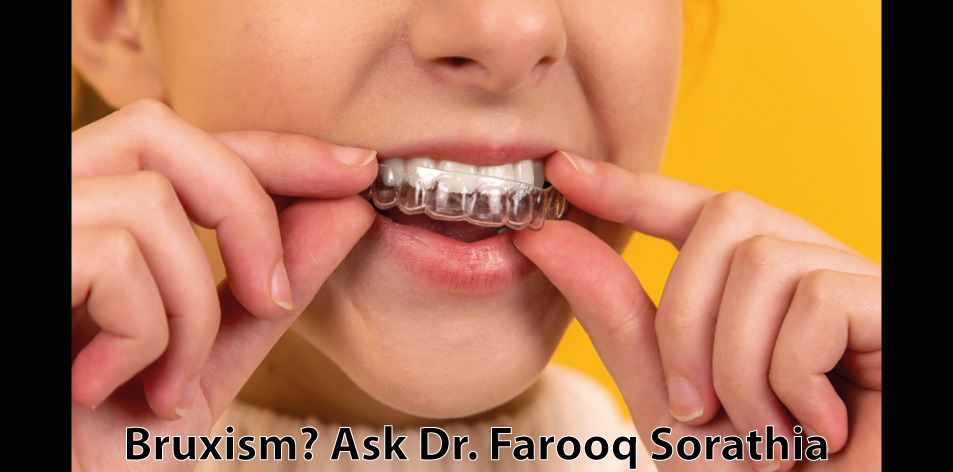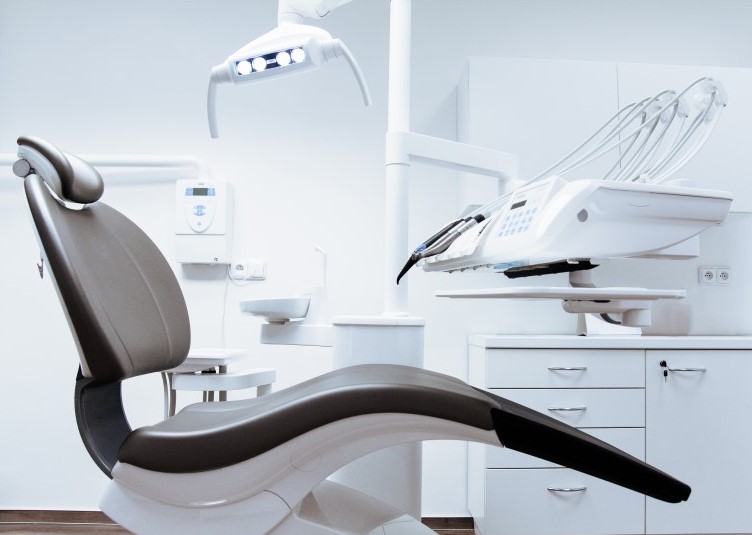
Bruxism? – Ask Dr. Farooq Sorathia
What Is Bruxism?
Bruxism is a term used to describe abnormal tooth grinding. Nocturnal bruxism is described as tooth grinding when sleeping. Bruxism generally is a parafunctional habit, which means it’s a habit that functions out of the norm. It is usually caused by anxiety and stress that one experiences in life. During the day, we can consciously control the amount of force that we exert when it comes to teeth grinding, however, we have all experienced that teeth-clenching moment at least once in our lifetime. We need to consciously avoid doing that. Studies have shown that the biting force of clenched jaws when sleeping, can be up to six times more than the forces exerted when we are awake.
Patients will usually complain of headaches, or sore jaws when they wake up in the morning. These are some of the classical signs of nocturnal bruxism. Usually, the patient mentions that my spouse says I grind my teeth when I am asleep. The patient wouldn’t know or feel anything apart from the abovementioned symptoms. Over time, these habits can result in the wearing of enamel (which is the outer protective layer), it can break fillings, it can result in teeth becoming loose because of all the forces applied on the teeth. When one goes to the dentist, the dentist will analyze all the teeth and make recommendations based on what they find. It is important to mention all the symptoms that you are experiencing so that the dentist may consider all options and provide you with the correct diagnosis, and the best treatment possible.
I am sure some of you must be thinking, what is the treatment for bruxism? Well, unfortunately, there is no cure for bruxism, but there are some factors that may help manage bruxism. It is important to get professional help to manage bruxism, as so far, we only get 2 chances to protect our natural teeth. One is when we have baby teeth, and the second and last chance is when your permanent teeth are in function. Therefore it is important to prevent any further damage to our natural teeth and try to keep those pearly whites for as long as we can.


